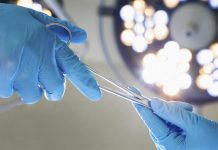Researchers at the Stanford University School of Medicine just came out with a study asserting that women all over America are being lured into agreeing to medically unnecessary breast removal surgery (bilateral mastectomy surgery) by doctors who use “scare tactics” and “falsely describe” genetic testing results.
What I need to add into this study is that not just American women but also Filipino women and all women who have had the unfortunate circumstance of feeling or seeing a lump in their breast – and automatically identified it as cancer.
Going back to the study’s findings, women who have harmless genetic variants called VUS (Variants of Uncertain Significance) are lied to by nearly half of all breast cancer surgeons, saying that what they have is the “breast cancer gene” (BRCA1 or BRCA2) and therefore need urgent surgery if they want to live. A very popular example of this kind of incident was the double mastectomy that the famous actress Angelina Jolie had to undergo some time ago after being diagnosed that she carried the breast cancer gene. Now with the new Stanford study, questions arise if Angelina’s mastectomy was really necessary or if she was hyped to go through this procedure by the same kind of breast cancer doctors we mentioned earlier.
Here are some important points and discoveries gathered from the Stanford University study:
-Corrupt cancer surgeons are deceiving breast cancer patients with “fake science” scare tactics. These surgeons use high-fluting, highly technical words when explaining and justifying to their patients the need for surgery, chemotherapy or any other conventional cancer treatment. If the patient agrees to such a procedure, the doctor can benefit from it through private insurance or public insurance systems such as Obamacare in the U.S. All of these benefit the surgeon more than the patient, who in the first place, might not really be having a serious case of breast cancer.
-There was limited understanding among the physicians and patients surveyed about the meaning of genetic testing results, said Dr. Allison Kurian, Stanford Associate Professor of Medicine and Health Research and Policy. Since only a few patients can interpret their genetic testing results on their own, it was easier for the doctors to scare them about the risk of not acting immediately on the results through conventional cancer treatments.
-Variants of uncertain significance are not considered high cancer risk, therefore patients should be counseled well regarding which genetic test is considered normal and which one is abnormal. The surveyed physicians stated that they manage the patients without cancer in the same way as the patients with mutations that reputedly increase a woman’s risk of cancer.
The study’s authors recommend patients to seek a genetic counselor, not just the surgeon, to interpret their genetic testing results.
-The study’s authors recommend never to agree to breast removal surgery unless a genetic test has been interpreted by an independent genetic counselor who is fully qualified to interpret the results – and who will not profit from your sickness. They advised not to trust a cancer surgeon who will profit from the surgery you are being recommended.
-The study’s findings also revealed that surgeons deliberately tell women with harmless VUS mutations that they have the breast cancer gene and that it will develop into full-blown cancer if not treated immediately by surgery (of the two breasts).
-About a quarter of those who underwent genetic testing did only after breast removal surgery. This indicates how the surgeons had orchestrated fear into the minds of the patients that they were not even given the opportunity to undergo genetic testing BEFORE any drastic cancer treatment like surgery was executed.










